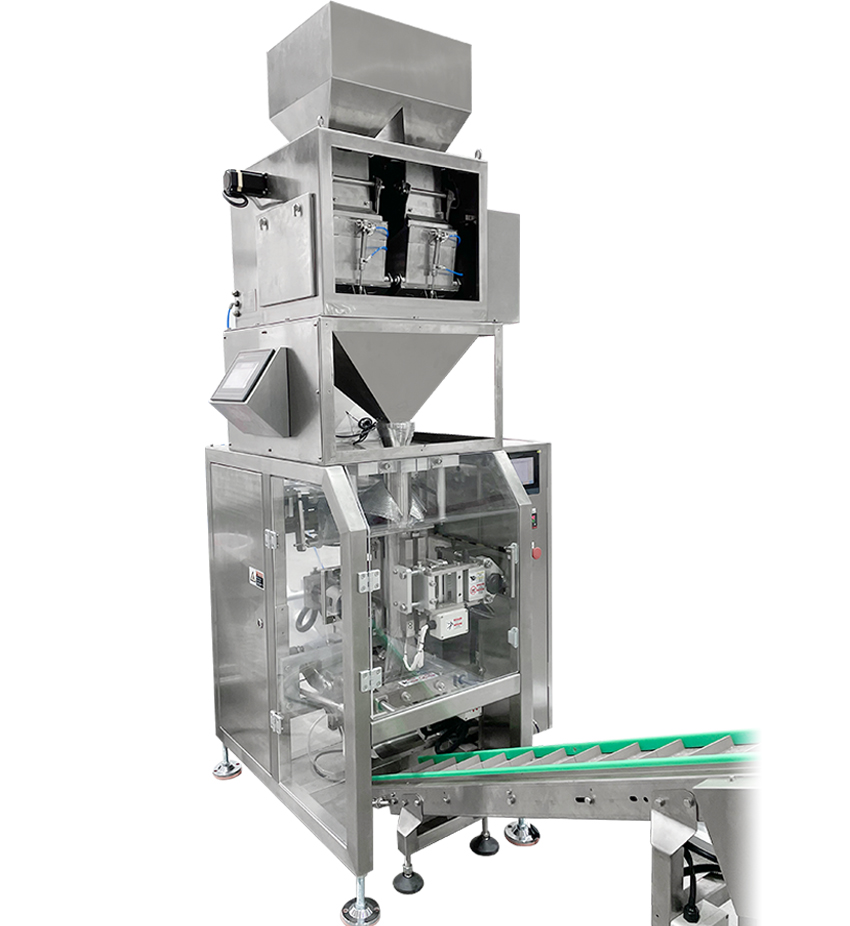Packing Scale Machine, Net Weigher, and Packing Filler: The Ultimate Guide
The packaging industry thrives on precision, speed, and efficiency. In an era where automation dominates, tools like packing scale machines, net weighers, and packing fillers have revolutionized how goods are prepared for distribution. Whether you're managing a manufacturing unit or running a food packaging business, understanding these machines is key to streamlining operations and boosting productivity.
Let’s explore these essential machines in detail, their benefits, applications, and why they are indispensable in the packaging sector.
What Is a Packing Scale Machine?
A packing scale machine is an advanced device designed to weigh and package products accurately. It is commonly used across industries, from agriculture to food processing, pharmaceuticals, and more. These machines automate the weighing and filling processes, ensuring consistent product packaging.
Key Features of Packing Scale Machines
- High Precision: These machines deliver accurate measurements, reducing product wastage.
- Customizable Settings: Adaptable for different product weights and packaging materials.
- Durable Construction: Designed to withstand heavy-duty industrial use.
- User-Friendly Interface: Equipped with touchscreens and programmable controls for ease of operation.
Types of Packing Scale Machines
- Manual Packing Scale Machines: Require partial human intervention.
- Semi-Automatic Models: Combine human input with automation.
- Fully Automatic Packing Scales: Operate independently with minimal supervision, ideal for high-volume production lines.
The Role of Net Weighers in Precision Packaging
A net weigher is a specialized machine that focuses on accurate weight measurements before packaging. Unlike gross weighing systems, which include the container's weight, a net weigher calculates only the product weight. This level of precision is crucial for industries like food and pharmaceuticals, where product consistency matters.
Advantages of Using Net Weighers
- Improved Accuracy: Eliminates discrepancies caused by container weight variations.
- Consistency Across Batches: Maintains uniformity in product packaging.
- Time Efficiency: Faster processing speeds compared to manual weighing.
Applications of Net Weighers
- Food Industry: Used for packing grains, spices, nuts, and snacks.
- Agriculture: Weighing fertilizers, seeds, and animal feed.
- Pharmaceuticals: Ensures precise dosing of powders or capsules.
Understanding Packing Fillers
A packing filler is an essential piece of equipment used to fill containers with products, whether they are liquids, powders, or granules. These machines can work independently or in combination with packing scale machines and net weighers for seamless operations.
Types of Packing Fillers
- Liquid Fillers: Ideal for beverages, oils, and syrups.
- Powder Fillers: Used for flour, spices, and powdered chemicals.
- Granule Fillers: Designed for products like rice, sugar, and nuts.
Benefits of Packing Fillers
- Increased Efficiency: Speeds up the filling process, reducing downtime.
- Accurate Filling: Ensures every package contains the right quantity.
- Versatility: Compatible with various packaging materials such as pouches, bottles, or jars.
The Integration of Packing Scale Machines, Net Weighers, and Packing Fillers
When these machines work together, they create an optimized packaging system. The process typically involves the net weigher measuring the product, the packing filler dispensing it into containers, and the packing scale machine ensuring accuracy and consistency in the final package.
Why Integrate These Machines?
- Seamless Automation: Reduces manual intervention and increases production speed.
- Error Reduction: Minimizes human errors in weighing, filling, and sealing.
- Cost-Effectiveness: Lowers labor costs while maximizing output.
Factors to Consider When Choosing Packaging Equipment
Selecting the right packaging machines can make or break your operations. Here are key factors to keep in mind:
- Type of Product: Is it a liquid, powder, or granule? Choose machines that specialize in your product type.
- Production Volume: High-volume businesses benefit from fully automated systems.
- Budget: Evaluate initial costs versus long-term savings in labor and efficiency.
- Machine Compatibility: Ensure your equipment can integrate seamlessly with existing systems.
- Maintenance Requirements: Opt for machines with minimal upkeep to avoid production delays.
How These Machines Drive Industry Trends
With increasing consumer demand for precision and speed, industries are rapidly adopting these machines. Here’s how they align with modern packaging trends:
- Sustainability: Machines are now designed to work with eco-friendly packaging materials.
- Smart Technology: IoT-enabled machines allow real-time monitoring and remote operation.
- Compact Designs: Smaller machines fit into limited spaces without compromising efficiency.
Top Brands in Packaging Machinery
When investing in packing scale machines, net weighers, and packing fillers, quality matters. Leading brands like Ishida, Yamato, and All-Fill are known for their innovative designs and reliable performance.
Conclusion
Packing scale machines, net weighers, and packing fillers are the backbone of modern packaging systems. They not only improve efficiency and accuracy but also ensure that businesses meet industry standards and customer expectations. Investing in the right equipment can transform your operations, boosting productivity and profitability.
FAQs
1. What is the primary difference between net weighers and gross weighers?
Net weighers measure only the product weight, while gross weighers include the weight of the container.
2. Can packing fillers handle different types of products?
Yes, packing fillers are designed for liquids, powders, and granules, depending on the type of filler used.
3. Are packing scale machines suitable for small businesses?
Absolutely. Many manufacturers offer scalable solutions tailored to small and medium enterprises.
4. How do I maintain my packaging machines?
Regular cleaning, lubrication, and timely replacement of worn-out parts ensure longevity and optimal performance.
5. Are these machines compatible with eco-friendly packaging materials?
Yes, most modern machines are adaptable to a wide range of sustainable packaging materials.



Comments
Post a Comment